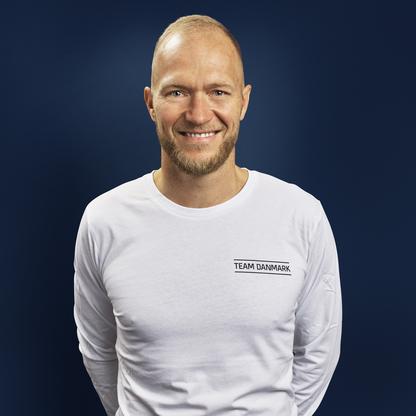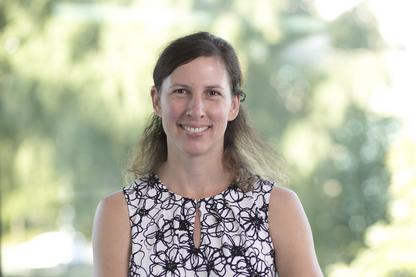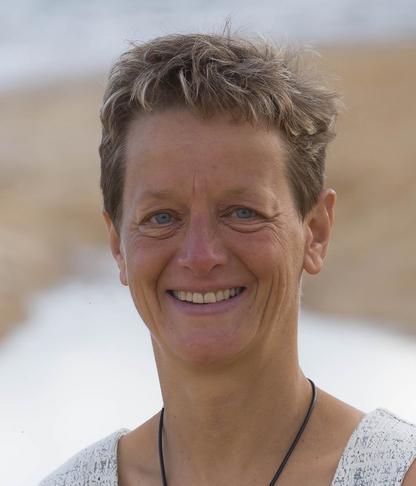
SVEBI´s annual Sport Science conference
Many thanks for your participation and commitment to the 2023 sports science SVEBI conference!

From the left: Vassilis Sevdalis, Andreas Fröberg, Heléne Bergentoft, (sitting) Beatrix Algurén and Wolfgang Weiser and Mulki Haji, Petter Wiklander and Suzanne Lundvall, Department of Food and Nutrition and Sport Science at the University of Gothenburg.
Below you find the invited keynote presentations. A link will be sent via email to the participants with the presentations in audio and video.

Key note speakers: Dawn Penney, School of Education Edith Cowan University, Australia, Astrid Schubring, German Sport University Cologne, Germany, Åse Strandbu, NIH, Norway and Kristoffer Henrichsen, SDU, Denmark, and Suzanne Lundvall, Department of Food and Nutrition and Sport Science at the University of Gothenburg, coordinator of the 2023 SVEBI conference.
The speakers' (keynotes) presentations.
2023 SVEBI Schubring
Here is a personal summary of the conference written by the two participants Comfort Ankunda and Webster Tinashe Chakawata Dept. of Sport Sciences, Malmö University, and published on idrottsforum.org:

University of Gothenburg, the Department of Food and Nutrition and Sport Science together with Swedish Association for Behavioral and Social Research in Sport (SVEBI), invite to the annual Sport Science conference with the theme:
Inclusive and sustainable practices in Sports Coaching, Physical Education and Physical Activity.
Contribution to the funding of the conference has been received from the Swedish Research Council for Health, Working Life and Welfare (FORTE).
The conference overall theme
In recent years, issues of inclusion and sustainability have become increasingly urgent and relevant to the field of sport science. Agenda 2030, with its sustainable development goals, has set the scene for promoting dimensions of economic, social, and environmental sustainability. This involves areas such as education, performance, health and well-being and social equality. The work with sustainability has the potential to bring together practitioners, scientists, and scientific methods from different research areas.
This year's SVEBI conference welcomes contributions that address inclusive and sustainable practices, broadly defined, in sports coaching, physical education (PE), PE-teacher education, daily movement in schools and self-organized sport, as well as contributions within the research field of physical activity and health.
|
|
|
|
|
|
.

Invitation to the best student essay on sports 2022-23
Read more about the competition for the best student essay on advanced level with a sports pedagogical, -psychological, -sociological or other social science sports focus.
Find out how the essay is to be submitted – dead line 15 th of June 2023.
Invitation to the competition for the best student essay on sports 2022-23 (gu.se)

Working group
Beatrix Algurén
Andreas Fröberg
Heléne Bergentoft
Vassilis Sevdalis
Suzanne Lundvall
PhD students:
Mulki Haji
Wolfgang Wieser
Petter Wiklander
Keynote speakers
Kristoffer Henriksen is a professor at the Institute of Sport Science and Clinical Biomechanics at the University of Southern Denmark. His research in sport psychology takes a holistic approach and looks at social relations and their influence on athlete development and performance with an emphasis on successful talent development environments. His employment includes a specialized function as a sport psychology practitioner in Team Denmark (national elite sport institution). In this function he focuses on developing mentally strong athletes and coaches and high-performance cultures in national teams. He has supported athletes at numerous championships and three Olympic Games.
A journey to sporting excellence is a journey through good environments
The holistic ecological approach (HEA) to talent development acknowledges the role of the overall environment and offers a case study approach to investigating the structure and of athletic talent development environments (ATDEs). Our research over the last 15 years concludes that environments have varying degrees of success in helping athletes make the junior-to-senior transition. Successful environments are characterized by coherence between what people say and what they do (culture) and between what different people in the environment do (structure). Recently, HEA has been expanded to investigate Dual Career Development Environments, Interorganizational collaboration and ATDEs in underserved communities just as youth sport and elite sport environments are under current investigation.
Introducing the concept “Ecology of Athlete Development”, in the present keynote I summarize the research under the vision of successful athlete development as a journey through good environments that support the athletes’ sport and personal development, performance and mental wellbeing.

Åse Strandbu is a sociologist and professor at the Department of Sport and Social Sciences and head of the Research Center for Children's and Youth Sports at the Norwegian Sports Academy. Her field of research is the importance of sport in young people's lives, social inequality in access to sport, sexual harassment in sport, and parental involvement in sport.

Astrid Schubring is Professor in Sociology of Sport at the German Sport University Cologne. Prior she has been Assoc. Professor in Sport Science. Astrid’s research interests centre on athlete health and well-being, youth and elite sport, biographical research, and the body in physical education.
What can we learn from athletes’ lived experiences about sustainable career development?
The development of expert performance has interested sport scientist for decades. Depending on disciplinary perspective, different theories and research methodologies have been used to explain why some athletes develop into champions, and how coaches, clubs and sport systems can best support this process. Existing research has however first and foremost focused on physical and mental dispositions, skill learning and training regimes. In this presentation, I argue for the importance to turn to athletes’ lived experiences as a central base of knowledge. Delving into career research in Olympic and Paralympic sport, I show how becoming an elite athlete is a ‘whole person process’, situated in time and sociocultural context. I move on to discuss the sustainability of athletic careers and close with an outlook on future research and implications for practice.

Dawn Penney is Professorial Research Fellow in the School of Education at Edith Cowan University, Australia, leading national and international research project developments addressing quality, inclusion and equity in health and physical education (HPE), physical activity and sport. Dawn has worked with government agencies, curriculum authorities, schools and sport organisations in collaborative research and evaluation projects addressing policy and curriculum development in HPE, and the provision of physical activity and sport for young people.
From 'what futures?' to sustainable and inclusive futures for Physical Education: Political will, policy work and pedagogical leadership.
Over 20 years on from posing the question 'Physical Education: What Futures?', this keynote lecture will direct attention to future policy and pedagogy in Physical Education that is shaped by interests in sustainability and inclusion. The first part of the lecture will explore the meanings and prospective implications of sustainability and inclusion agendas for curriculum, pedagogy, and assessment in Physical Education. This will provide the foundation from which to critically examine how these agendas are represented in contemporary developments in Physical Education policy and pedagogy, and what it will take to achieve more than tokenistic engagement with them. I consider the political will to commit to and invest in forms of Physical Education that align with sustainable and inclusive futures, the types of policy work that will advance or hinder progress towards such futures, and the individuals and organisations that can provide the pedagogical leadership to realise these futures.
